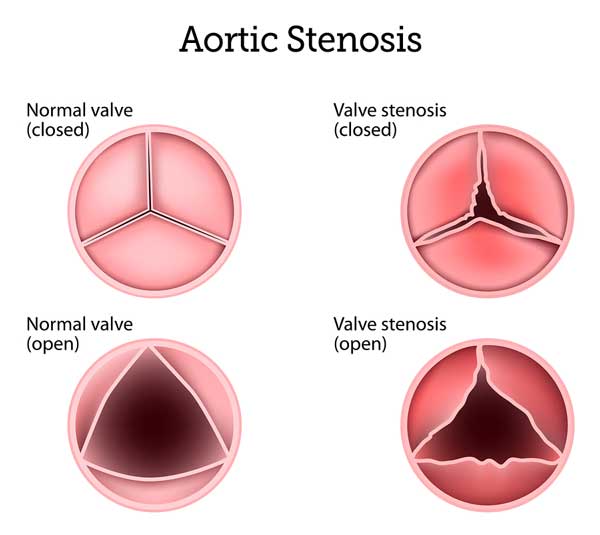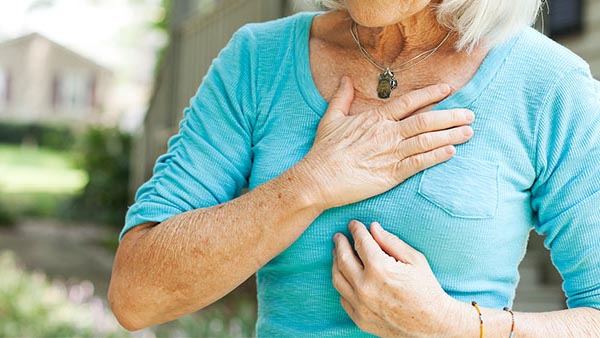What you need to know about Aortic Stenosis Treatment
Contents
- 1 What you need to know about Aortic Stenosis Treatment
- 2 What Does the Procedure Involve?
- 3 How Long Should You Stay in the Area?
- 4 How Long is the Recovery Time?
- 5 What Aftercare Should You Consider?
- 6 What is the Success Rate for Aortic Stenosis Treatment Procedure?
- 7 Are there Alternatives to Aortic Stenosis Treatment?
- 8 What Should You Expect Before and After the Procedure?
Aortic stenosis is a common and serious condition in which the aortic valve opening is narrowed, restricting the blood flow from the left ventricle to the aorta which affects the pressure in the left atrium. The treatment plan for aortic stenosis depends on whether you experience any signs and symptoms, the severity of the condition, as well as whether your condition is getting worse. The treatment options are medication and surgery.
What Does the Procedure Involve?
Your doctor may give you ACE inhibitors, beta-blockers, or diuretics, but medications are only used to treat symptoms and decrease the risk of complications. In most cases, surgical procedures are required to treat aortic stenosis, including aortic valve repair, balloon valvuloplasty, and aortic valve replacement. During aortic valve repair and replacement, you are given a general anesthetic before the surgery, then your doctor makes an incision in your chest to access the aortic valve and repair or replace the affected aortic valve. With balloon valvuloplasty, your doctor inserts a catheter with a balloon on its end into an artery in your groin or arm and guides it to your aortic valve.

How Long Should You Stay in the Area?
After surgery, you need to stay in the hospital for several days, normally 5 to 7 days. You should plan to stay in the country for at least 14 additional days following the surgery or until your surgeon allows you to travel.
How Long is the Recovery Time?
The recovery time after aortic stenosis treatment depends on your overall health before the treatment and if there were any complications. Most people gradually regain their energy and resume their normal activity levels within four to eight weeks, but you should consult your doctor about your recovery timeline as it can vary widely from one person to another.
What Aftercare Should You Consider?
After your treatment, you may need to attend regular follow-up appointments, but you can schedule the appointments with your local doctor. It is vital that you make healthy lifestyle changes, such as regular exercise, a healthy diet, avoiding cigarettes, and stress management, to keep your heart healthy and to reduce the risk of future complications. Your doctor may also suggest you have cardiac rehabilitation to help you recover and improve your health.
What is the Success Rate for Aortic Stenosis Treatment Procedure?
Treatment for aortic stenosis is considered safe and effective. The risk of death after surgery is less than 1%. However, there are risks of side effects and complications, such as blood clots, bleeding, valve dysfunction, stroke, infection, heart rhythm problems, and death.
Are there Alternatives to Aortic Stenosis Treatment?
Most cases of aortic stenosis eventually need medications and surgery. However, if you are not experiencing any symptoms, your doctor may monitor your condition with regular appointments and you will need to make healthy lifestyle changes. If you need treatment but you do not want to take medicine or undergo surgery, it is best to consult your doctor about the best alternatives.
What Should You Expect Before and After the Procedure?
Before treatment, you may experience heart murmur, chest pain, shortness of breath, heart palpitations, fatigue, and feeling dizzy with activity. Also, your risk of heart failure is very high. After treatment, any symptoms should be gone and your risk of heart failure is greatly reduced, allowing you to return to your normal routine.
For an in-depth analysis of an Aortic Stenosis Treatment Procedure, watch this short video.
To check prices or to book an Aortic Stenosis Treatment Procedure in Thailand or anywhere else in the world, head on over to MyMediTravel now!

